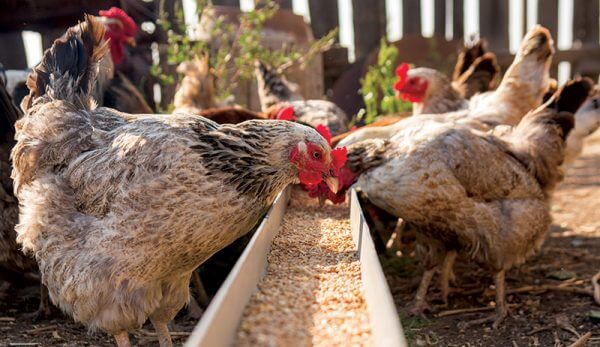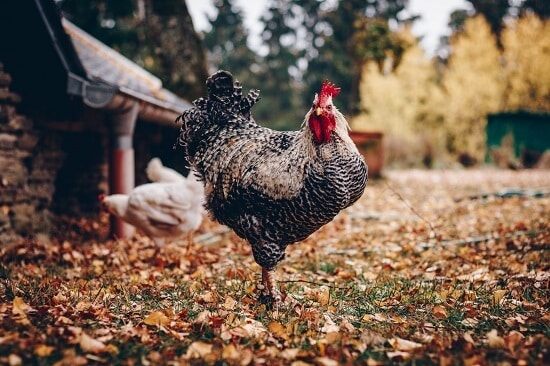Poultry farming is the raising of domesticated birds such as chickens, turkeys, ducks, quails, and geese for the purpose of getting meat, or egg production. Birds are farmed in great numbers with chickens being the most numerous – Basic Rules for the Poultry Farmer
Poultry farms are farms that raise chickens, ducks, turkeys, and other birds for meat, or egg production. In the past, poultry farming involved raising chickens in the back yard for daily egg production and family consumption.
However, poultry farming today is a huge business that is split into several operations including hatcheries, pullet farms for meat production, or farms for egg production.
We will focus on raising chickens.
As the human population increases, the poultry industry continues to grow to meet the demand for poultry products in world markets. The importance of poultry farms lies in the quality of products that are provided to humans.
Broiler farms provide meat that supplies the human body with high quality proteins. Layer farms provide eggs rich in proteins and vitamins, especially the fat soluble vitamins (A, D, E, and K). Poultry farms can fulfill the demand for meat and eggs, and can be expanded easily to meet the ever-growing demand.
Each operation in the poultry business has become a huge business by itself. Some farms specialize in producing eggs for market consumption, or for hatching chicks for the purpose of meat production. Many large farms specialize in raising broilers for meat production. Other businesses are focused on feed preparation or on using the wastes of poultry farms for compost production and fertilizing farmlands. If managed and marketed well, all segments of the poultry business can be profitable.
Keys to Successful Poultry Farming
Owing to the increasing demand for chicken, eggs and the quest for self-employment, many people are turning to poultry farming with mixed results. Some have succeeded while due to poor planning, others have failed.
They have failed due to their failure to plan. If someone is planning or is already into poultry farming and he or she wishes to grow it big, there are factors he or she needs to consider.
Some of these factors include Type of Birds: This is vital as other factors are dependent on it. The housing system, feeds, equipment and facilities someone may require for this venture are dependent on the type of birds to be kept. Chicken can be kept for their eggs, or meat (layers or broilers) and recently, huge interest has grown for indigenous chickens. As such, a farmer has to decide upfront what his or her interests are.
Layers: These are chicken breeds reared specifically for the production of eggs.

Housing for Chickens
It is said that by building a good housing system, one solves more than 40% of all poultry rearing problems. Chicken must be guarded from hostile weather conditions such as cold, rain, sun and wind. Safety from predators should also be considered in putting up a house unit.
Snakes, rodents, foxes, dogs, mongoose and other animals are chickens’ enemies.
It is therefore important to confine them in modern structures. The housing unit should have perches for the chicken to roost on at night. A poultry shed should be sufficiently ventilated to allow in enough oxygen for the birds.
Wiremesh can be used for the walls of the shed and it is vital that the number of birds do not exceed the stocking rate of the shed.
Overpopulation affects the birds’ health and increases disease incidences. On average, stocking rate should be 2 square feet per bird for layers and 1 square foot per bird for broilers. A traditional brooding basket can be used as a brooder for chicks either inside or outside the house. This is because chicks should be kept away from the chickens.
Equipment and Facilities
With the housing, it is also important that it is fitted with the necessary poultry equipment and facilities. The equipment and facilities are specific for different stages of the poultry project as discussed below: Brooder: For the brooder the following equipment and facilities are necessary:
• Heat source: The heat sources could be: brooder pots, charcoal stove, heat bulbs, among others.
• Drinkers
• Feeders
• Bedding
Normally the brooding stage is critical and may require specific facilities as discussed above. After the brooding stage, other necessary equipment include; feeders, drinkers, culling cage (for sick birds), egg crates (for layer) and so on. Based on the type and number of birds a farmer chooses to keep, you need to buy sufficient equipment in advance before getting the chickens.
Source of Chickens and Selection of the Breeding Stock
For the initial starting up, a farmer may decide to either buy chicks from suppliers or hatch them him or herself. He or she may decide to naturally multiply his or her flock especially for indigenous poultry. In this case, one factor to consider is careful selection of the chickens and cocks to ensure only better qualities are passed on.
Select a hen that is broody, does not abandon her eggs during hatching and looks after her chicks well. Select a healthy, strong cock and a cock should be allowed only 15 to 20 hens.
Another option is buying day old chicks. These can be purchased from local hatcheries.
Feeds
Feeding is an important part of raising chickens. Feeds make up the major cost of production and good nutrition is reflected in the bird’s performance and its products. Hence, the ability to manage feed costs and reduce feed wastage is a key component in successful poultry farming.
Disease Control
Chickens are subject to numerous diseases and parasites. In fact, diseases and parasites are the chief hindrances to success in raising poultry. Most common health problems can be avoided through preventative management; nevertheless, sooner or later every flock experiences its share of problems.
As a poultry farmer, you must be ever vigilant in
monitoring the condition of his or her flock.
How much Light do you need for Chicken Farming
Light is also a very important element for poultry farming. And poultry birds become very sensitive to light. Light helps the poultry birds to be productive, finding food and simulating them for reproduction.
Besides light, the poultry birds also need dark period for keeping good
health and producing melatonin hormone (which is very important for immune function). Almost all types of poultry birds require 8 hours of darkness period and 16 hours presence of light. Almost all poultry producer use only the natural light for lighting the poultry house.
Farming South Africa – Basic Rules for the Poultry Farmer
- YouTube Channel: Farming South Africa
- Facebook Page: Farming Life
- General Farming Farming South Africa
Tags: Basic Rules for the Poultry Farmer, Chicken Farmer, how to start chicken farming, Poultry farming for beginners, basics of chicken farming
Basic Rules for the Poultry Farmer


hi
i’m more interested in farming